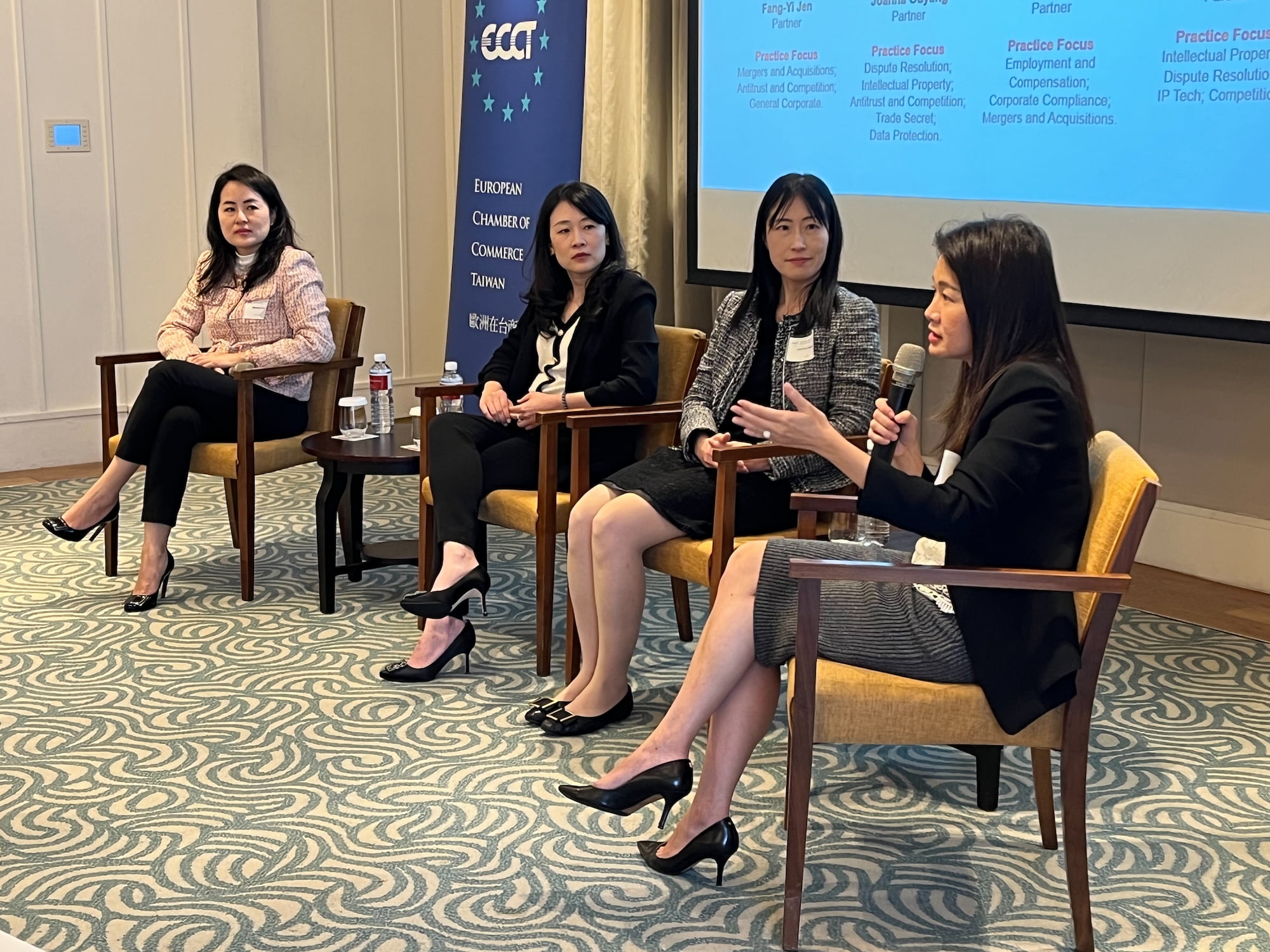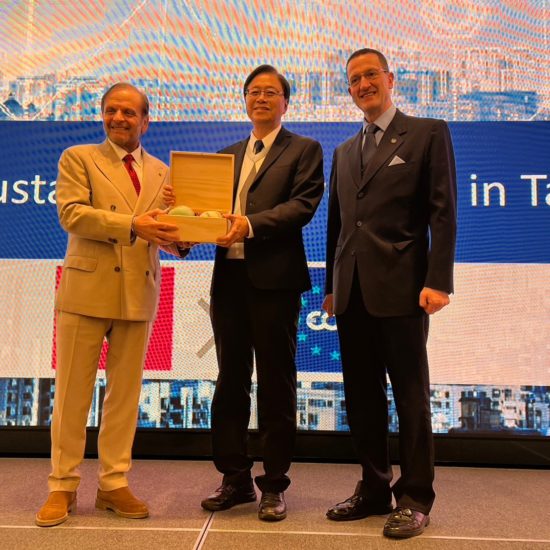Navigating fair trade, distribution agreements and gender equality issues

The ECCT's Luxury Goods committee hosted a lunch on the topic of navigating fair trade law and distribution agreements and gender equality issues for retailers. At the event, three legal experts provided updates and offered advice on dealing with the latest developments in fair trade law and risks associated with distribution/agency agreements, as well as recent updates to gender equality legislation that will affect companies operating in Taiwan. The three speakers were Jen Fang-yi (任芳儀), Joanna Ouyang (歐陽漢菁) and Pamela Tsai (蔡維恬), all of whom are Partners at Baker McKenzie, while the speaker introductions and panel discussion were moderated by Monica Chao, also a Partner at Baker McKenzie.
Jen Fang-yi began with an introduction to competition law in Taiwan, which aims to ensure that businesses compete fairly and independently. Competition law rules are designed to ensure that businesses make independent decisions regarding price, products, marketing, customers and geographic areas of activity and that businesses do not make agreements or engage in practices that prevent, restrict or distort competition.
The general rule on resale prices as it relates to retailers or distributors is that they must be free to set their own resale prices or other terms and conditions of sale. Any obligation imposed or pressure brought to bear upon a retailer or distributor to resell our products at a price determined by another party is prohibited. However, it is acceptable to recommend resale prices, although they may not be made binding. The speaker offered the practical tips to always use disclaimer language in communications to demonstrate that you are not attempting to fix prices and to always avoid language in communications that authorities might interpret as aimed at price fixing. Examples to be avoided are: "we need to fix prices" and "we want to maintain our brand image so it is important to keep our price at a certain level". In addition, when proposing a retail price, never use wording such as "approve" or "disagree", "advise" or "instruct".
While distribution/agency agreements offer great business potential to both brands and distributors/agents, they could also expose both parties to unexpected risks. Joanna Ouyang shared a real-world example of contractual disputes, and provided practical tips and insights on how to draft, negotiate, and enforce distribution/agency agreements. Among the most common pitfalls is to have an unclear scope of distributorship/agency. Parties should therefore clearly define the product, geographical area and channel (virtual and/or physical). Another pitfall is having vague sales targets, which is why it is important to set clear, achievable sales targets. Termination clauses should also be clearly defined. The speaker concluded by recommending the following best practices: Conduct thorough due diligence on potential partners; clearly define all terms and conditions in the agreement; seek legal counsel to ensure that the agreement is enforceable; do as the contract provides for and maintain open communication.
Following recent updates to the Act of Gender Equality in Employment (AGEE), Pamela Tsai introduced the latest requirements regarding employers' responsibility to prevent and deal with sexual harassment incidents. Among the most significant AGEE amendments are that: sexual harassment that occurs during non-working hours is now also covered; clear definitions are provided for "power harassment," "person in charge of the company," and the relevant liabilities; employers' responsibility is increased to prevent and deal with sexual harassment; and an external complaint mechanism has been introduced so that the authority is able to intervene in cases where it deems necessary.
To comply with the new amendments, companies are required to set up policy/complaint channels, conduct training/education on sexual harassment and be aware of any suspected sexual harassment. In the event of actual incidents, companies need to notify the local authority, separate the parties involved, conduct investigations, and provide counselling. They need to conclude investigations within two months, impose disciplinary actions and notify the local authority of the actions.
In addition, under the new amendment, victims have the option to file complaints to the local authorities in cases when the accused is the highest-ranking official or the employer, the employer has not addressed the complaint, the complainant is dissatisfied with the results of the investigation or disciplinary actions or if an employer fails to take immediate and effective corrective and remedial measures when he/she becomes aware of the incident.
The speaker stressed that handling complaints is the responsibility of every manager and leader and should always be taken seriously and followed up on in order to limit the fallout.

